Blog 1
The Andes, the Altiplano & the Atacama 2020
Exactly two years ago, I arrived in Cusco, Peru, ready to begin my South American altitude cycling expedition, The Andes, the Altiplano and the Atacama. The plan was to pedal a winding 3500km path from Cusco, Peru to Ojos del Salado, the world’s highest volcano, that straddles the Argentinian and Chilean borders.
Spanning over 7000km, the Andes is the longest mountain chain on the planet and boasts some of the highest peaks. The range also has the world’s highest volcanoes. Ojos del Salado is the world’s highest, measuring 6,893m, and there are more than 50 volcanoes that reach 6,000m.
The word altiplano means “high plain” in Spanish. The Altiplano is the area in west central South America where the Andes are the widest. The bulk of the Altiplano lies in Bolivia, with its northern and western fringes extending into Peru and Chile respectively. The average altitude of the Altiplano is 3750m.
The Altiplano merges with the Puna de Atacama (Atacama Desert high plateau) region of northern Argentina, Chile and southern Bolivia. It is the highest, driest desert on Earth.
In 2020, I pedalled up and out of Cusco (3500m) to Ollantaytambo, visited Machu Picchu, then continued down the Sacred Valley before turning into the more remote southern Peruvian Highlands, then around the east side of Lake Titicaca to La Paz. From there I descended Death Road and into the South Yungas. This was taking place as the COVID-19 pandemic swept the world and I had to make the painful decision to postpone the journey.
Returning to La Paz, Chris Pennington and I managed to escape Bolivia on the last commercial flight before the borders closed. Rolando, the support vehicle driver, was a hero driving us to the airport during a curfew.
This teaser video, made by Chris, gives a good taste of the 1100km journey.
The Andes, the Altiplano & the Atacama 2022
Last November, when it was evident Australia’s borders would finally reopen and it was looking possible to travel through Bolivia, Chile and Argentina, I wasted no time in making plans to continue the expedition from where I left off – La Paz.
A few things have developed since 2020. The physical plan is still similar – to finish at Ojos del Salado – but the route has evolved to create, what I believe will be, a more engaging story. It has now morphed into a 5000km altitude journey (inclusive of the 1100km already completed), testing my limits cycling up some of the highest volcanoes on Earth. I know this journey will be on the edge of my capabilities.
The story of the journey, however, will be more than an exploration of my physical and mental limits and the positive mindset I must adopt to succeed. It is going be infused with insights about Andean cultures, past and present, focusing on what the mountains mean to the people.
For the people of the Andes, the mountains have always presided over their world. Mountain worship was the keystone of ancient Andean cultures. The mountains were venerated primarily because they controlled the climate and water sources and as a result, the fertility of crops and animals, communities and empires.
I plan to investigate some of their beliefs, particularly those related to the mountains I explore, and the innovations and adaptations the Andeans have made to overcome their challenges and improve their lives.
I hope to find out whether there are lessons to be learnt from Incan and other Andean cultures that can be related to some of the issues confronting our global community today, such as climate change, sustainable consumption, gender equality and the need to preserve and work with our environment, not against it.
Due to the success of my TV series, Diamonds in the Sand, my team and I are in a much better position to create another series and film. With me this time is executive producer, Reza Pakravan (A-OK Media House, London), and Toby Nash (Graduate of Dulwich College Singapore’s IB programme and University College London psychology undergraduate, aspiring adventure filmmaker and Spanish speaker). Also playing integral roles in the expedition are our driver, Rolando Zarate and Peruvian filmmaker, Javier Bellina (who filmed the Peru section of my journey in 2020). Reza is with us for two weeks and will be replaced by Javier for the last six weeks.
Organising this expedition hasn’t got easier – there are so many moving parts and many uncertainties due to the changing situations brought on by the pandemic.
Another exciting partnership I now have is with 2DegreesC a start-up not-for-profit organisation committed to helping to mitigate the climate emergency. As an ambassador, I will be carrying special climate sensors on my bike that, through an app they have developed, I’ll be able to collect and send the scientific-quality data to its global data base. The data is important to help equip scientists, conservationists and other organisations to make the best informed decisions for the health of our planet. www.2DegreesC.Org
Education is again at the forefront of my objectives and I welcome the participation of schools around the world, particularly from EiM (Education in Motion), led by Dulwich College Singapore.
The cycling app FulGaz is another partner. I will be filming segments of the journey from the handlebars for FulGaz to convert into indoor training rides – to give those who don’t have the time to cycle in the Andes to at least get a feel for what the experience is like. https://fulgaz.com/about-fulgaz/
I want this journey to be symbolic of getting back out there post-pandemic, mending some of the mental scars, escaping the depressing Covid-19 news cycle and raising spirits with positive, inspiring real life (not virtual) stories.
Getting there
The flight from Melbourne to La Paz was an horrific 42 hours via LA, Miami and Bogota. There still aren’t many flights available to many parts of the world and so the route I had to take was not well-connected. One part that did connect was meeting my two British team mates, Reza and Toby in Bogota before we took the same plane to La Paz. Together we had a huge amount of luggage, including my bike, which somehow all arrived in the same place.
Our ever-reliable driver, Rolando was waiting patiently to meet us – customs held us back and checked everything! We returned to the Hotel Boutique El Consulado, where Chris and I last stayed before escaping in 2020.
We have three days here to get ready to leave on 28th February. There’s plenty to do to prepare and sort out a few more logistical complications, but we did spend time to explore the city on foot to help acclimatise to the altitude (3650m) and see some of the sights.
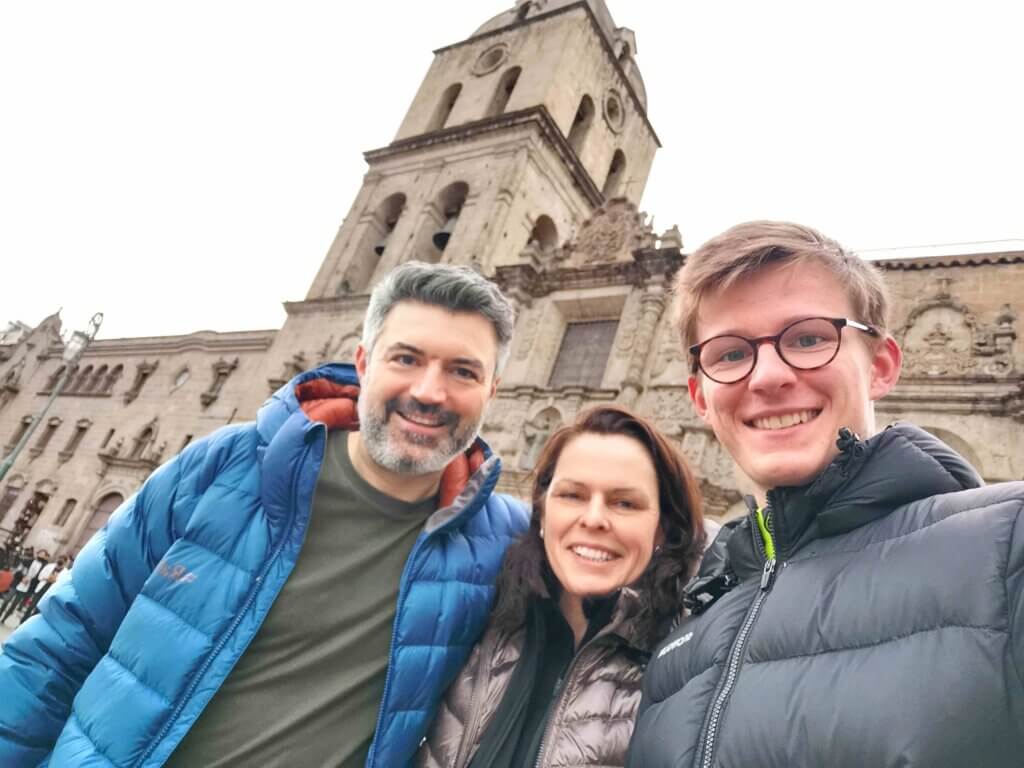
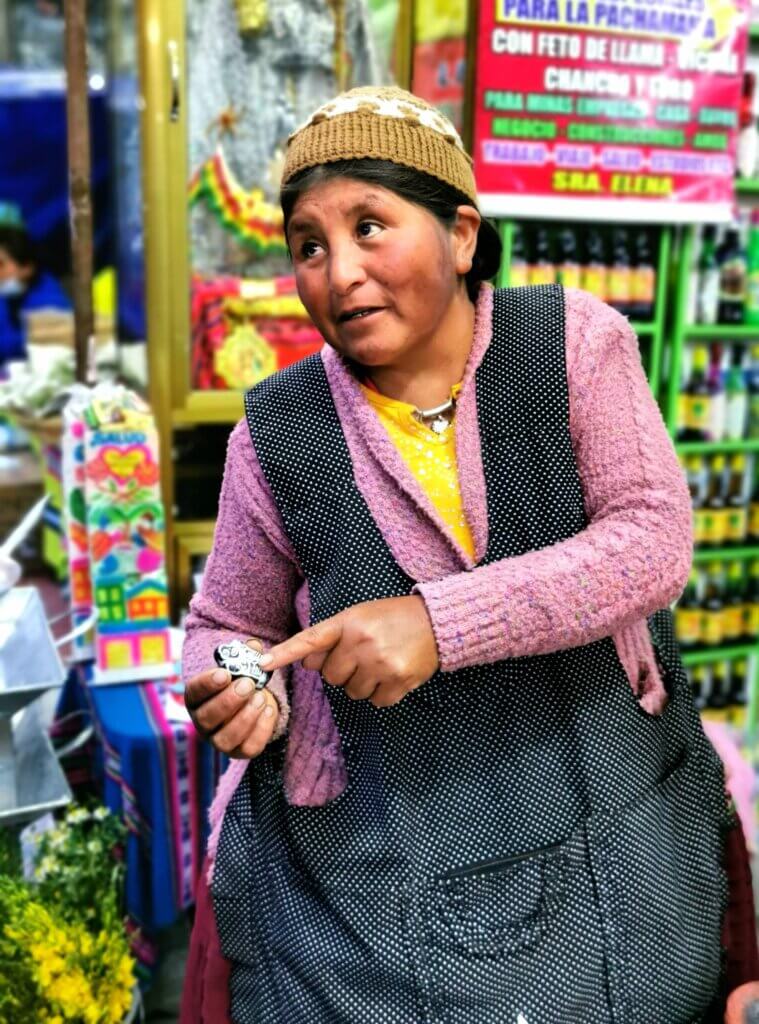
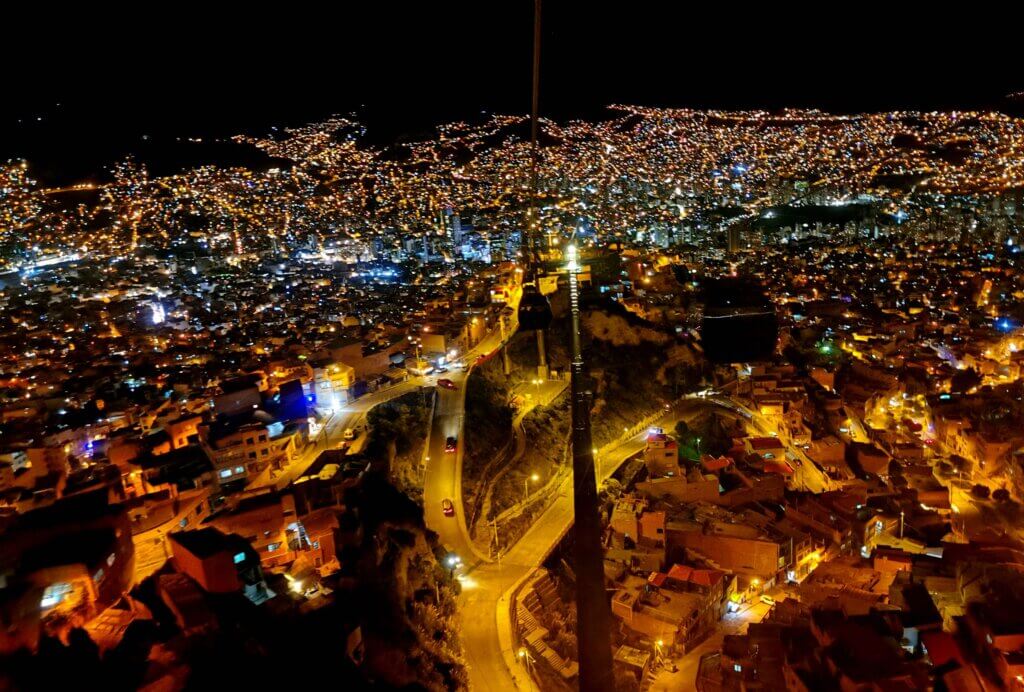
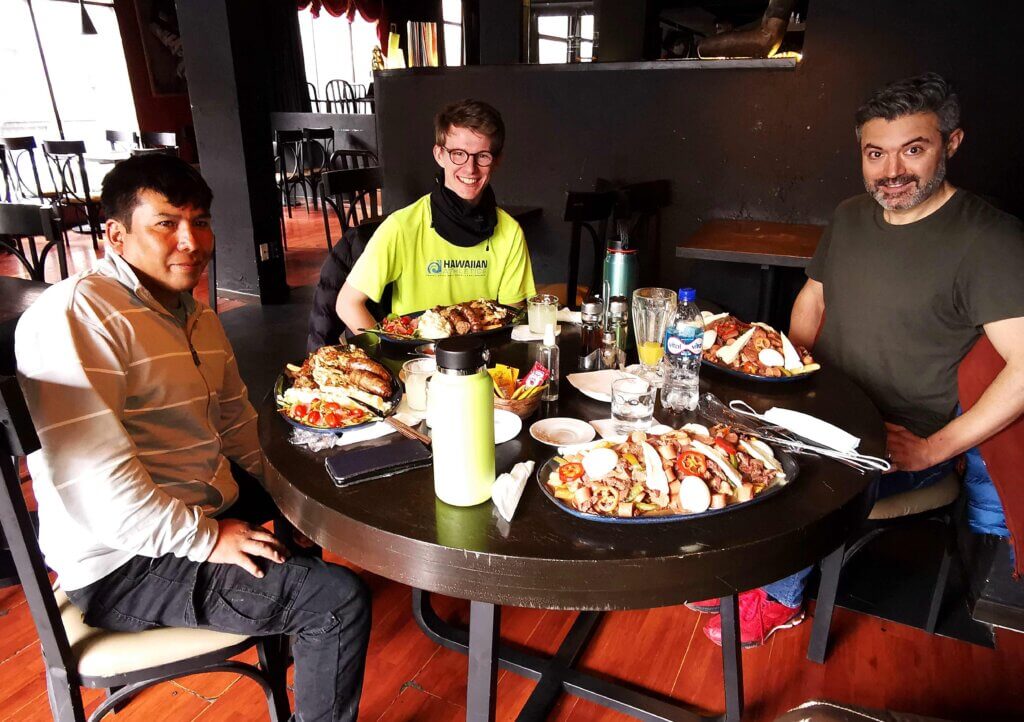
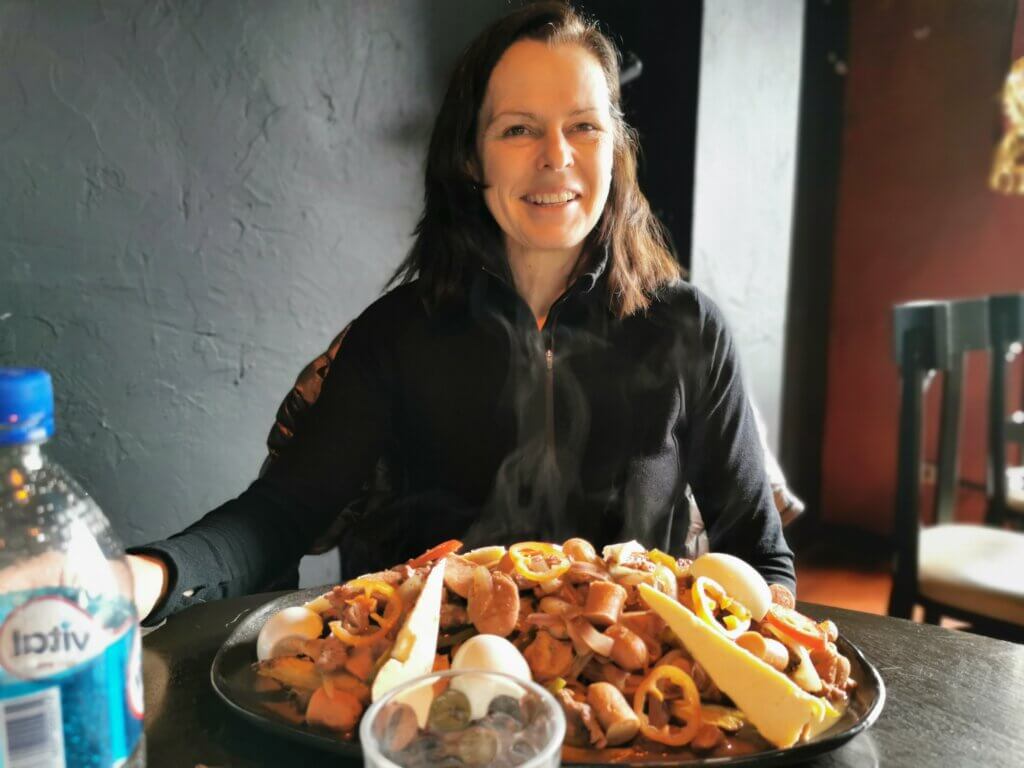
Sponsors
This time I have managed to gain the generous support of 22 different product sponsors, as you will see on the email slide. Myself and the team sincerely thanks these sponsors.
Can you help?
And finally, while I have many product sponsors, finding the funding for this expedition has proved to be very challenging. I am around $42K short and currently having to fund the journey and filmmaking myself. If you enjoy following my journeys, I would really appreciate your support please. I can accept donations via this link or you can contact me for further details.
https://www.breakingthecycle.education/product/donation/
Follow the journey in real time on Maprogress at: https://kateleeming.maprogress.com/andes_altiplano_atacama
***









The very best of good luck and smooth riding Kate. Its going to be great to follow your journey. Another great adventure.
Thanks Rob, I look forward to getting on the road tomorrow!
Fabulous to see Kate and Toby! See if we can get more of the Dulwich schools to follow along! Wishing bests…
Wishing you all the very best of luck Kate!
From all of us at 2°C
🙂
Wishing you all the best for the adventure, Kate.